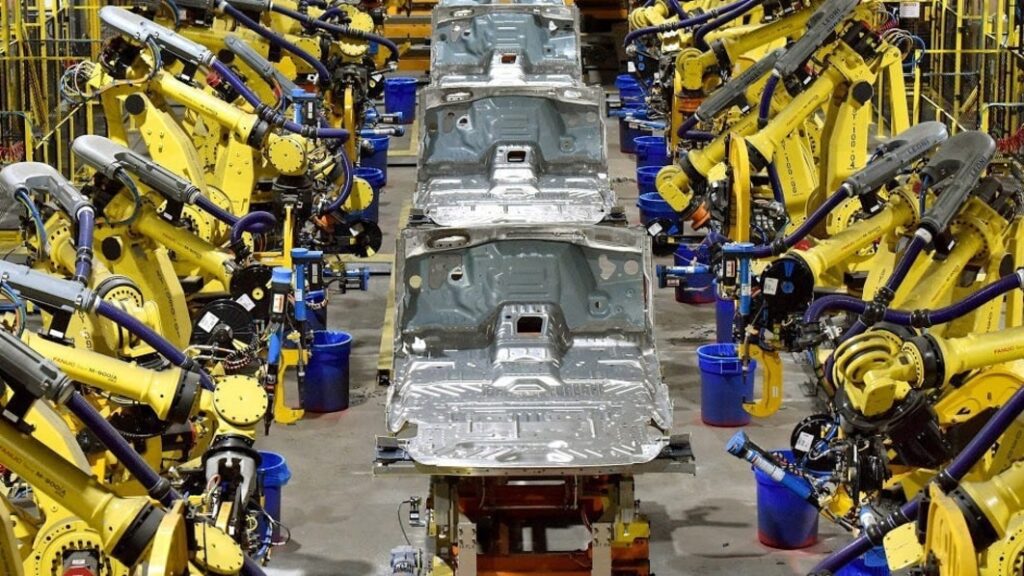The UAW strike is putting your new pickup truck in danger

Ford
The UAW strike is now hitting pickup trucks.
Smaller trucks at Chevrolet are already in short supply.
Work stoppages could send trucks back to pre-pandemic inventory levels.
Pickup trucks are about to get a lot harder to find.
A month into the United Auto Workers union’s strike at Ford, GM, and Stellantis, inventory of GM’s midsize pickups is down significantly, according to new data from Cars.com.
Add to that the biggest move yet in the strike when UAW unexpectedly shut down Ford’s highly profitable F-Series pickup truck factory in Kentucky, and a crunch on full-size pickup inventory seems close behind.
Going into the strike, highly profitable pickup truck and SUV plants were most at risk – bad news for shoppers who just started to see deals returning on dealer lots.
GM’s Wentzville assembly plant, which builds the smaller Colorado and Canyon pickups, was among the first factories targeted by the UAW when the strike began last month. It only took about three weeks of stalled production for dealer stockpiles of the Colorado to dip nearly 41%, while the Canyon fell nearly 38%, according to Cars.com’s latest inventory report.
GM went into the strike with leaner inventories, and until the UAW called the strike at Ford’s F-Series plant Mary Barra’s car company was the hardest hit in the ever-expanding UAW work stoppage. The quick drop in availability for GM’s midsize pickups doesn’t bode well for F-Series availability if the UAW’s strike drags on, industry experts said.
Back to pandemic levels
Ford, GM, and Stellantis had led the way this summer on a return to pre-pandemic car deals and discounts as dealer stock returned to more normal levels. But now shoppers are looking at yet another bottleneck on vehicle availability that is likely to drive up the prices of these already expensive trucks.
The longer the strike drags on, the more dealers and customers will start to feel the pain of production shortages, harkening back to 2020 when COVID-19 outbreaks caused targeted plant closures and created a ripple effect in the market.
In a livestream with members Friday, UAW President Shawn Fain did not expand the strike but hinted at more erratic escalations in the coming days.
“We will be calling out plants when we need to, where we need to, with little notice,” Fain told members. “Stay ready.”
It’s likely that high-profit truck and SUV plants like Ford’s Kentucky factory are on the chopping block. Just last week, GM narrowly escaped a work stoppage at its SUV factory in Arlington when the company agreed to union representation for future battery plants.
Tesla gets the benefit
While the Detroit companies continue trying to balance the impact of the UAW strike on their business, Tesla is set to reap the benefits, analysts say.
Elon Musk’s electric car company has struggled with bloated inventories all year, a problem that Musk has worked hard to turn into an advantage by setting off an EV pricing war. And any lack of pickup truck availability at other brands could benefit the Cybertuck launch later this year.
Detroit car companies have already struggled to keep up with Tesla’s price cuts. Most electric cars sold by Ford and GM are sold at a loss right now while the companies continue to invest billions in their electric divisions.
The UAW’s demands are only set to make EVs made at Ford, GM, and Stellantis more expensive, one analyst said, creating a “nightmare situation,” for the Detroit Three.





